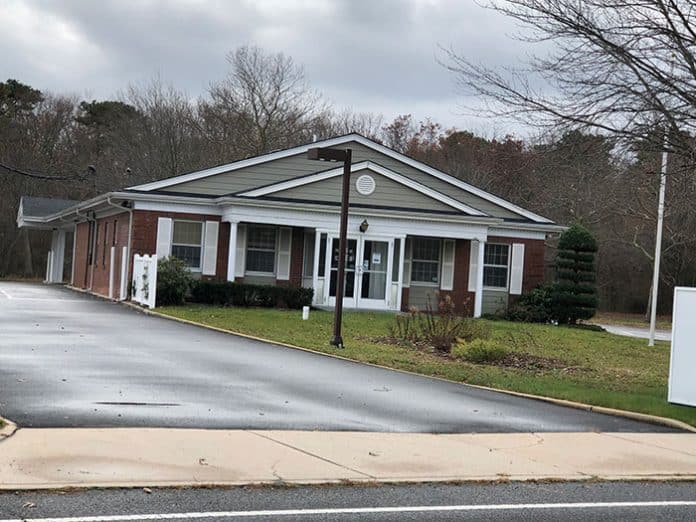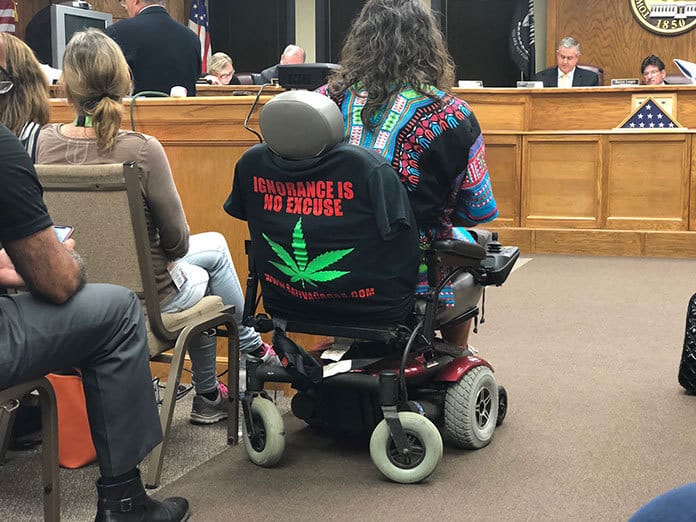
BRICK – Jersey Shore Therapeutic Health Care (JSTHC) is no longer seeking to open a medical marijuana dispensary on Adamston Road, but they still want to use the property to cultivate and manufacture marijuana there in a planned 48,000 square-foot grow house.
This change comes on the heels of the Township Council’s proposed ordinance that would “prohibit the retail sale, cultivation, manufacturing and testing of marijuana products for recreational use” in Brick Township. The ordinance passed on the first reading during the February 26 council meeting, and final vote is scheduled for March 12.
Chief executive officer of JSTHC Brick attorney Anne Davis said that after local residents expressed concerns during Board of Adjustment hearings about traffic, crime and safety, she said she would be taking sales out of the equation.
“We said we’d never do recreational sales, that it would be limited to medical sales only, but some of the residents were very headstrong, so I want to be a good neighbor,” Davis said in a phone interview on March 7.
Davis has hired local land use attorney Dennis M. Galvin, who notified the township Board of Adjustment that JSTHC would no longer need to go before the Board for a use variance.
He asked that the matter be transferred to the township Planning Board since the proposed use for the property would be agricultural – a permitted use on the 6.7-acre parcel, located in Rural Residential Zone (RR1) at the site of a former OceanFirst Bank.
Davis said pending legislation in New Jersey means the state might limit the number of “vertical integration licenses” that allow companies to own three of five different types of licenses. The three do not have to be at the same location. Those licenses are cultivation/manufacturing; processing; wholesaling; delivering and retailing.
“Two local municipalities have said they would welcome a medical marijuana dispensary, and with the pending legislation, they would be separate licenses anyway,” she said.
Asked if she expects pushback from local residents, Davis said she does.
“But I don’t think an objection is valid. If we built houses there, we’d have roads, curbs, sidewalks, sewers…it would have a much greater impact than a cultivation center, so that’s not a reasonable objection to say we can’t build anything on our own property,” she said.
The grow house would be “in the middle of the woods,” and not likely to be seen from the road, Davis said. An estimated 30 employees would be the only people on the property, she added.
If recreational use of marijuana becomes legal in New Jersey, medicinal dispensaries would be able to supply both in order to remain competitive, Davis said.

“It’s an important point that we would never do recreational sales there. It doesn’t belong there because it would add too much traffic,” she said. “In medicinal sales you schedule online appointments and you can make projections for traffic.”
She said there is no legitimate reason to ban the cultivation of marijuana in town and the resulting tax revenue from the new business.
“A ban is a bad move for the residents of Brick,” Davis said. “It may end up in litigation.”
On the “Brick Residents Say No to Rezoning” Facebook page, residents are not happy about the cultivation plan for the property and many say they will attend the March 12 council meeting.
“Cultivation isn’t farming, it’s industrial – not permitted use, neither is manufacturing permitted in RR1, so the combination isn’t a permitted use, so still requires a variance,” wrote one resident.
“Let them take their plans to areas with open land, away from communities,” wrote another. “We have plenty of open areas west and southwest for this group to focus on; keep this idea out of family communities.”
While Mayor John G. Ducey said he cannot comment on pending applications, he said gets complaints daily from residents about trees coming down for new businesses coming to town.
“Businesses are allowed to open if they own the property, but this is one of the few instances the council has a say – by not allowing the sale, cultivation, manufacturing and testing of marijuana products for recreational use in our town,” he said.






